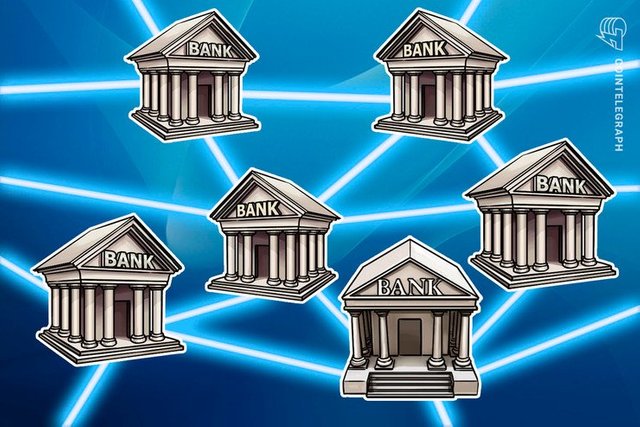ADSactly Crypto: What Is A Central Bank Digital Currency
Bitcoin has unlocked a pandora's box that is private money and with it a range of altcoins that apply the blockchain in various ways. It's no secret that Bitcoin is there to counter the current fiat system which in many countries are far more digital than physical as it once was, with credit cards and internet transfers making up a large percentage of fiat money transactions.
The fiat money system in has grown faster than its infrastructure can handle and to have a central point link banks managing funds and keeping accounts and acting as settlement layer has exposed its shortcomings as the velocity of transactions through digital means continues to increase.
In a bid to keep up with the time's banks are starting to explore CBDC or central bank digital currencies. The central banks of Canada, the United Kingdom, Japan, European Union, Sweden and Switzerland created a group with the Bank for International Settlements (BIS) to jointly research central bank digital currencies (CBDC) and a reported 70% of banks also looking into the technology.

Image path - cointelegraph.com
What is a CBDC?
This digital form of fiat money run by central banks is different from virtual currency and cryptocurrency, which are not issued by the state and lack the legal tender status declared by the government.
CBDCs is a cryptocurrency that represents the traditional fiat but instead of having a decentralised blockchain its all run by the central bank, the common denominator being the use of blockchain technology, a digital ledger that allows transactions to be recorded and accessed in real-time by multiple parties.
Unlike cryptocurrency that's purchasing power is based on the private market, CBDC is influenced by the FX market as well as the inflation rate at which it is created by the central bank of that nation.
What are the benefits of a CBDC?
CBDCs could make payments systems less time-consuming and costly, more efficient, reducing transfer times and settlement times and thus stoking economic growth.
CBDCS could address problems like inefficient payments that cryptocurrencies seek to solve while maintaining state control over money.
CBDC's also allowed for greater data aggregation and keep track of purchases so banks can improve financial products and see in real-time the performance of certain financial products at the expense of your privacy, which isn't different from the current system but it will be more efficient.
It also allows for programmatic money that has certain conditions to it through the help fo smart contracts, giving banks and governments even more power over the distribution of funds.
So what do you think of CBDC? A necessary evil? A step in the right direction?
Written by @chekohler
Sources
Previous ADSactly Crypto posts
- ADSactly Crypto: What Is A Block Reward?
- ADSactly Crypto: What Is Coin Burning?
- ADSactly Crypto: What Is Liquidity In Cryptocurrency?
- ADSactly Crypto: Why SegWit Is a Big Deal For Bitcoin
- ADSactly Crypto: What Is The Bitcoin Liquid Network?
- ADSactly Crypto: What Is Ethereum Sharding All About?
- ADSactly Crypto: Why Is the Bitcoin Hashing Rate Important?
- ADSactly Crypto: What Is Blockchain Interoperability?
- ADSactly Crypto: What Are Bitcoin Forks?
- ADSactly Crypto: What Are Bitcoin Transfer Accelerators?
- ADSactly Crypto: Fungibility And Confidential Transactions
- ADSactly Crypto: A Break Down Of Bitcoin Value
- ADSactly Crypto: How Many Bitcoin's Have Already Been Lost Forever?
- ADSactly Crypto: What Is the Bitcoin Halving?
- ADSactly Crypto: What Is A Bitcoin Paper Wallet
- ADSactly Crypto: The Importance of Private Keys
- ADSactly Crypto: How Bitcoin Futures Could Affect The Future Of Bitcoin
Click the coin below to join our Discord Server
)
Muchas gracias por la información muy útil
It's a pleasure, glad you found it informative
I thought that the central banks of the countries (or states) did not have an interference in the field of crypto-currencies. But I see that this is not necessarily so. In my country, Venezuela, the regime (that's what we call it, because it is a totalitarian state) created a supposed "crypto currency", which is not such, the so-called "petro", and which is under the control of the Central Bank. It would seem, then, that the world of the chain of blocks is not so decentralized or free, and that the power of the State always ends up being imposed, or not? I have observed in these last weeks that it can also be manipulated by a powerful individual (multimillionaire), just as I suppose it could be by certain economic groups.
Thanks for your post, @chekohler.
I tend to agree with you, I think it's even more dangerous than normal fiat because it's programmable, it's easier to monitor and revoke certain transactions and it's also easier to confiscate in a bail-in by the banks should an economic collapse. I'm not a fan of CBDCs but if it allows us to buy more BTC and make it easier, then I guess we can still use it to move into private money easier
I have read in recent months how some central banks in some countries have reviewed the feasibility of using this type of currency. From what they say, there are more advantages than disadvantages. The government of my country has made an invention called Petro that has not worked so far. Let us hope that these coins do not serve to accumulate more power and to "launder" money. Thanks for your post, my friend!
How do you get petros? Are they available at banks? Do people get paid in Petros? how does it work? Unfortunately, I think that CBDCs will become more of surveillance money and programmable to force people into doing certain things. While it may cut down on cost and make it cheaper to use, it comes with a lot of power that can be abused and I don't trust governments and banks not to abuse it